A sense of fear and loss is mounting as the coronavirus pandemic enters its fifth week in Maine, propelled by daily reports of increasing closures, unemployed workers, COVID-19 cases and deaths.
Through it all, family members and friends living isolated and apart cannot gather to share their grief, comfort one another or pray together. The combined impact is challenging the religious faith of some, while it’s reinforcing or igniting spirituality and a sense of community in others.
“It’s pretty easy right now to get discouraged, depressed and despondent,” said the Rev. Kenneth Lewis, pastor of Green Memorial AME Zion Church in Portland.
“But don’t miss your Easter,” Lewis continued. “We’re all missing a lot right now. Don’t miss this opportunity to reconnect, to restore, to refurbish.”
Spring has been a time of spiritual renewal for millennia, and the coronavirus cannot be allowed to interrupt that necessary healing process, Lewis said.
As Christians celebrate Easter, Jews mark Passover and Muslims prepare for Ramadan, the Portland Press Herald/Maine Sunday Telegram asked spiritual leaders to share their insight and encouragement during an unprecedented period of uncertainty and dread.
Typically on Easter Sunday, many Mainers head to church to celebrate the risen Christ and give thanks for the sacrifice he made to wash away the sins of the world. This year, they are marking the holiday at home and connecting with other Christians through conferencing websites.
At sundown last Wednesday, members of Maine’s Jewish community began celebrating the eight days of Passover, which commemorates the emancipation of the Israelites from slavery in ancient Egypt. Many of them are also sharing Seder meals and attending religious services via Facebook, Zoom and other means.
And Muslims across the state are preparing for the month of Ramadan, beginning April 23, when they will fast daily to celebrate their faith, show gratitude and demonstrate compassion for those less fortunate.
The social isolation brought by the pandemic has been especially difficult for some members of the Muslim community who are relative newcomers to Maine, said Ahmed Abdirahman, president of the Maine Muslim Community Center in Portland.
Many are immigrants who face cultural and language barriers that make them more dependent on their faith community for social interaction and emotional support. And fewer are familiar with the internet, so gathering for prayer services via the web hasn’t happened yet, Abdirahman said.
One Muslim family was devastated in recent days when a family member died – from causes other than the coronavirus, Abdirahman said – and they were unable to hold a large community gathering as they normally would. Muslim leaders are preparing the community for the possibility that more deaths may go unrecognized during the pandemic.
And it remains to be seen whether the pandemic shutdown will end or the internet hurdle can be overcome before the end of Ramadan, when 4,000 to 5,000 Muslims usually gather at the Portland Expo to celebrate Eid al-Fitr, the Festival of Breaking the Fast.
“I don’t know what that’s going to look like,” Abdirahman said. “It will be a learning moment for all of us.”
Abdirahman has firsthand experience with the threat of the coronavirus. Married with seven children, he’s a respiratory therapist at Mercy Hospital in Portland, working three 12-hour shifts per week and being on call for more. As he left for work recently, he heard one of his kids call out, ‘Daddy, don’t bring that disease home to us.’ ”

Bishop Robert Deeley of the Roman Catholic Diocese of Portland looks out on an empty Cathedral of the Immaculate Conception before celebrating Mass on Holy Thursday. Derek Davis/Staff Photographer
Still, he tries to remember he’s had it worse. Abdirahman fled war-torn Somalia in the 1990s and spent time in a refugee camp in Kenya before coming to Maine in 2004.
“I witnessed people dying in high numbers every day,” he said. “I tell myself, ‘You had much more difficult experiences.’ There, people were dying in the streets. Here, people are hospitalized.”
But not being able to gather at the local mosque is something completely new and difficult for everyone, Abdirahman said.
“This is the first Ramadan when we won’t be able to go to the mosque and celebrate,” he said. “At a difficult time like this, most people look to their faith to find comfort and gather to find support.”
The challenge of the pandemic is to maintain faith when it is most difficult, Abdirahman said.
“People are tested so we can learn from the experience and become better human beings,” he said. “It is a time to explore how to help others, how to help the needy, how to teach your children at home, how to be a better person when that is not easy to do.”
Helping others, and God’s power to transform from death to life, are foundations of Christianity and the Easter message, said Bishop Thomas Brown, head of the Episcopal church in Maine.
Examples of both are everywhere during the pandemic, Brown said, from the pastor who delivered last rites via cellphone, standing outside the home of a person who lay dying, to Brown’s neighbors who made posters to support health care workers at Maine Medical Center in Portland.
“There are more of us in the world engaging in spiritual practice today than there were a month ago,” Brown said. “We understand what God’s mission is for us now, which is to help stop the spread of the virus and help protect the health care workers who are taking care of us.”
Brown acknowledged that people are experiencing an unprecedented type of stress made worse because it’s expected to continue for an unknown length of time. And while people have been able to form “beautiful” connections by holding religious services online, it cannot replace the experience of gathering in person.
“Some of the most powerful ways we bring about God’s presence aren’t possible right now,” Brown said. “We must call on each other to be as gentle, kind and understanding as possible. This moment in our lives is an opportunity to grow in our capacity to be human, to laugh, to cry.”
For many people, the pandemic has brought the darkness and light of the world into stark contrast and led them to become more involved in their faith community than ever before, albeit via the internet.
“Not being together at a time like this is very difficult,” said Rabbi Carolyn Braun of Temple Beth El in Portland. “But there’s a lot of identifiable suffering in this pandemic. It makes Passover more relevant to where we are now.”
The challenge may be even greater for younger people who have never faced the widespread devastation, personal sacrifice and social disruption that past generations experienced during the Great Depression, World War II or the Holocaust.
“For people who have felt an abundance of things, there is a real sense of upheaval now,” Braun said. “All of life is a balance of things. Good and bad. Light and dark. It is perfectly valid to feel bad and woe is me, and then recognize goodness that is still all around us.”
Part of that beauty shone down on us in recent days, when the vernal equinox brought a super full moon, the brightest of 2020.
The light drew Bishop Robert Deeley, head of the Roman Catholic Diocese of Portland, to venture outdoors and gaze up at the celestial sphere that has witnessed human suffering and advancement for thousands of years.
“The Judeo-Christian faiths have been a comfort to people for over 3,000 years,” Deeley said. “By the light of that moon, people have drawn the strength to find a way forward.”
The pandemic has forced people to recognize the benefits of community at a time when technology has promoted independence and fractured society, Deeley said.
“The pandemic has shown us our need for each other,” he said. “Community is at the heart of Christianity. Gathering together strengthens us and sends us forth. Our inability to gather as a community is a loss and we have to acknowledge that.”
At the same time, technology has allowed Deeley to continue celebrating Mass online each day, including Easter Sunday Mass at the Cathedral of the Immaculate Conception in Portland. And hundreds of Maine Catholics have been watching.
“I can visualize the cathedral is full,” Deeley said. “I’m not celebrating alone. For me that’s life-giving. I know they are with me.”
Whether people will continue to value their faith communities when the pandemic subsides remains to be seen.
“There’s always hope,” Deeley said. “I think people will be very afraid to gather together again for some time.”
Like Deeley and other Maine clergy, the Rev. Kenneth Lewis has embraced technology as a way to continue serving his flock during the pandemic. Hundreds as far away as Texas, Oklahoma and Georgia have joined his Sunday morning services and Tuesday evening Bible studies via Facebook.
Though he’s glad to be able to connect during a time of growing need, his online efforts will never replace in-person preaching or counseling.
“I can’t look in your eyes and see that you’re struggling,” Lewis said. “I’ve had to retune myself in meaningful ways to connect with my congregation.”
In his sermon this Sunday, Lewis will recall how Jesus returned to his disciples after he had risen from the dead. He implored Thomas, who had doubted him, to touch the wounds in his hands and his side. Thomas obeyed and proclaimed his belief in Christ the Lord.
“Jesus gave Thomas another chance to get on board,” Lewis said. “It was eight days later, but it wasn’t too late. The message is, don’t miss the next opportunity to learn. The next opportunity to grow. The next opportunity to speak peace. It’s never too late.”
Send questions/comments to the editors.

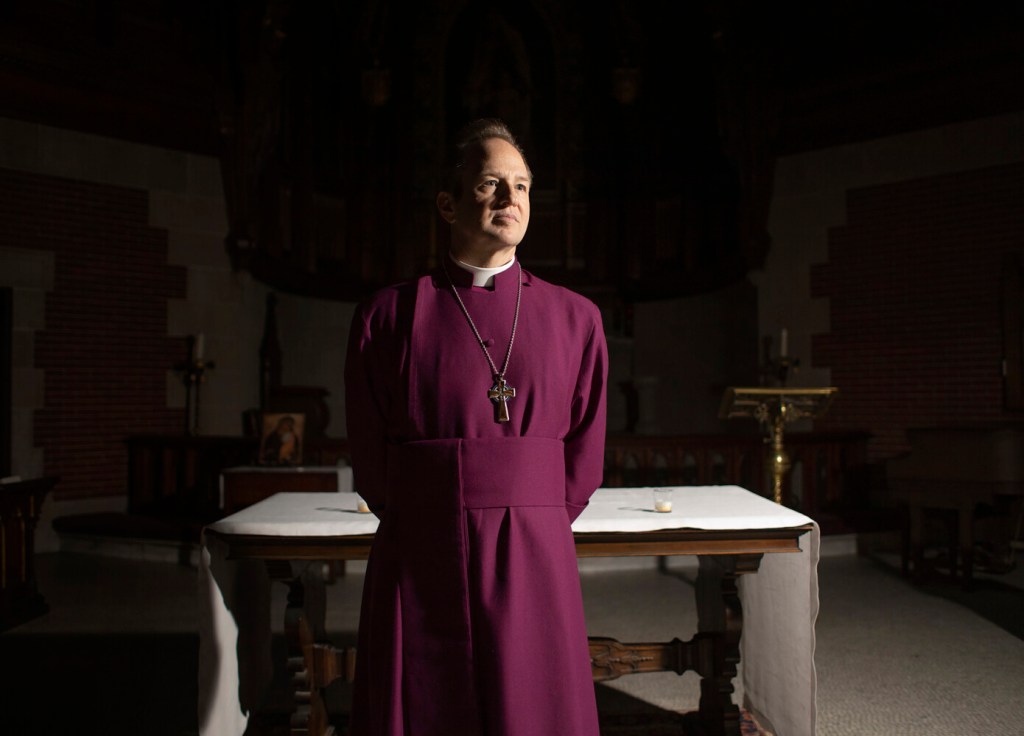
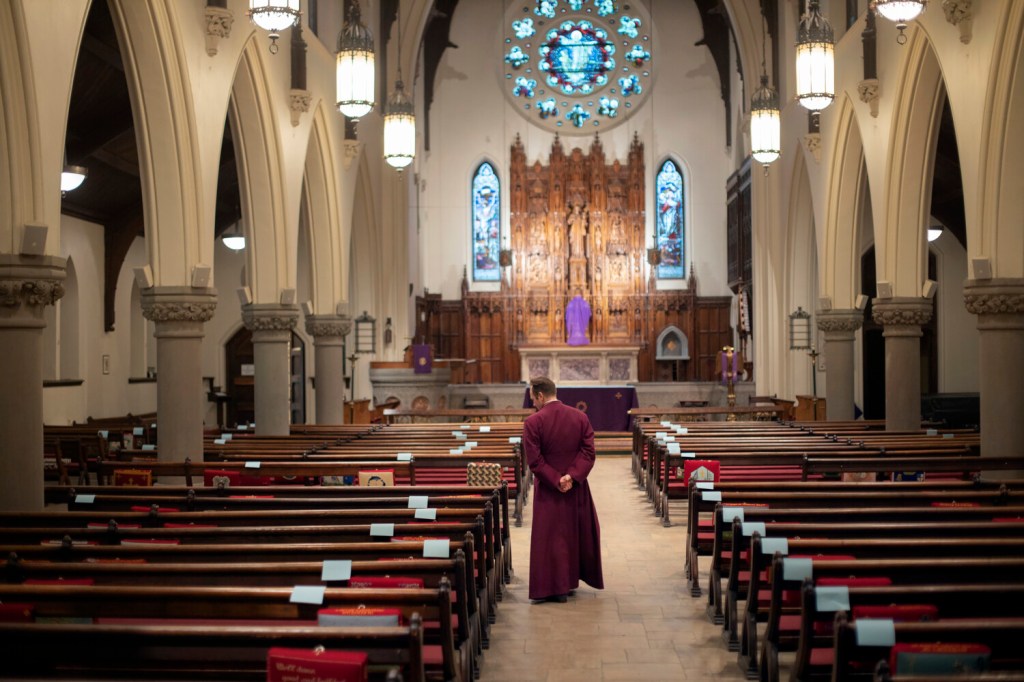
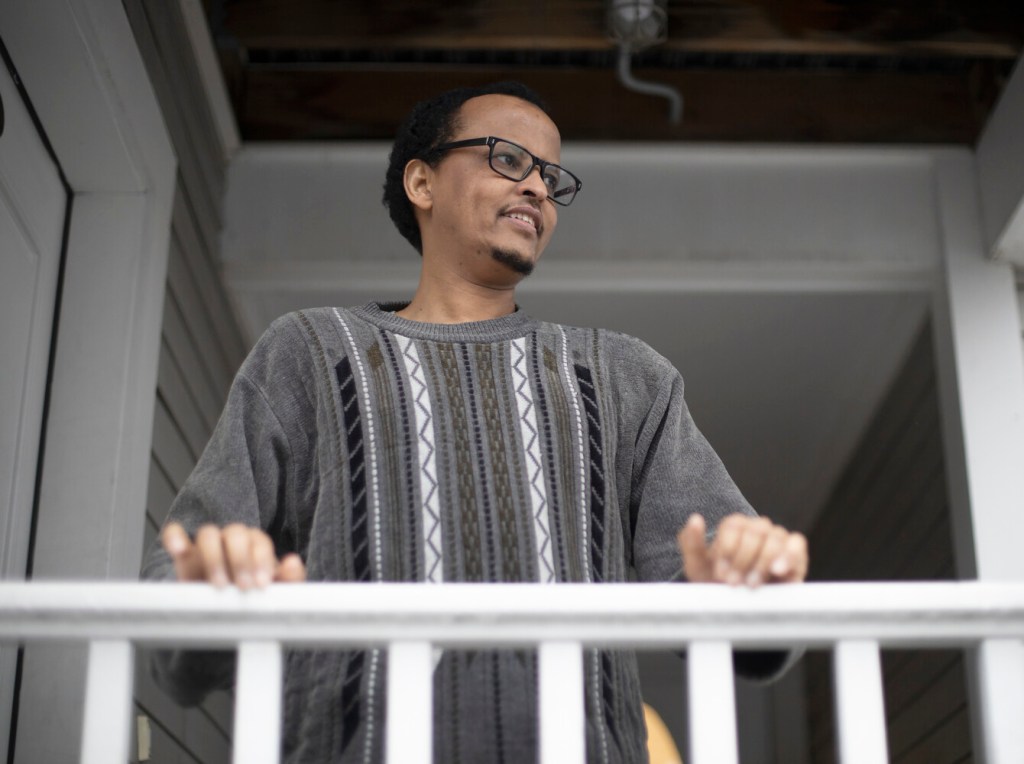
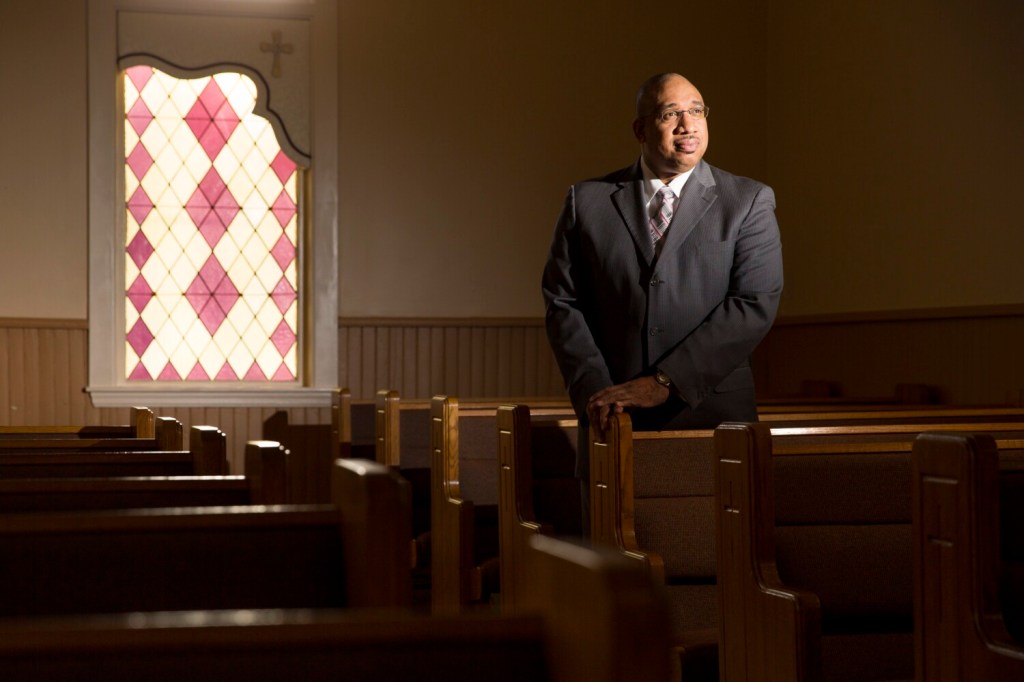
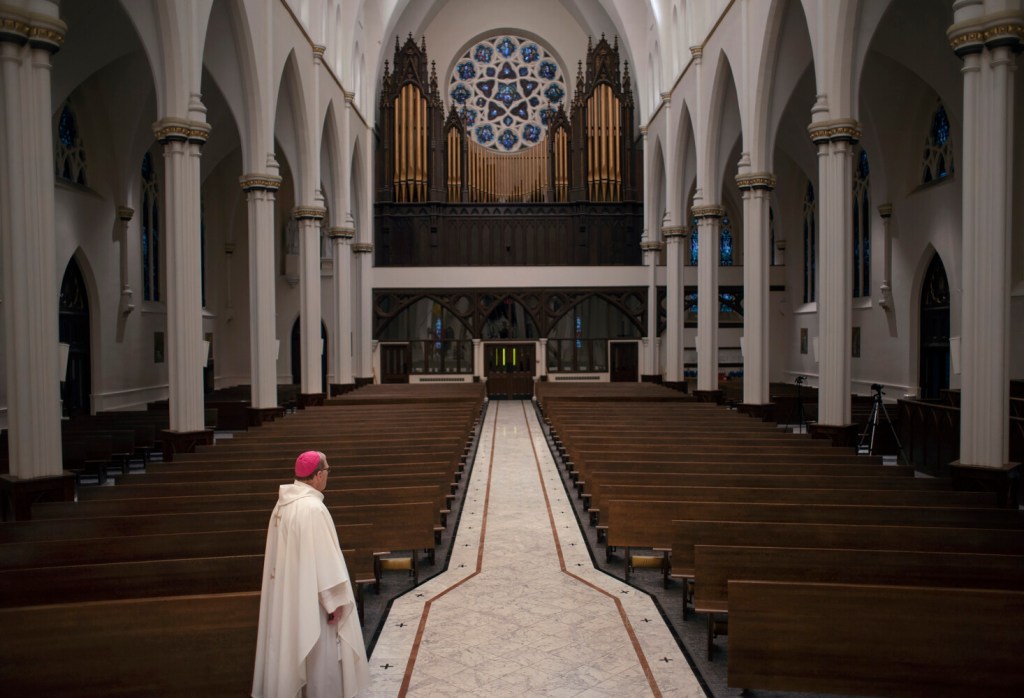
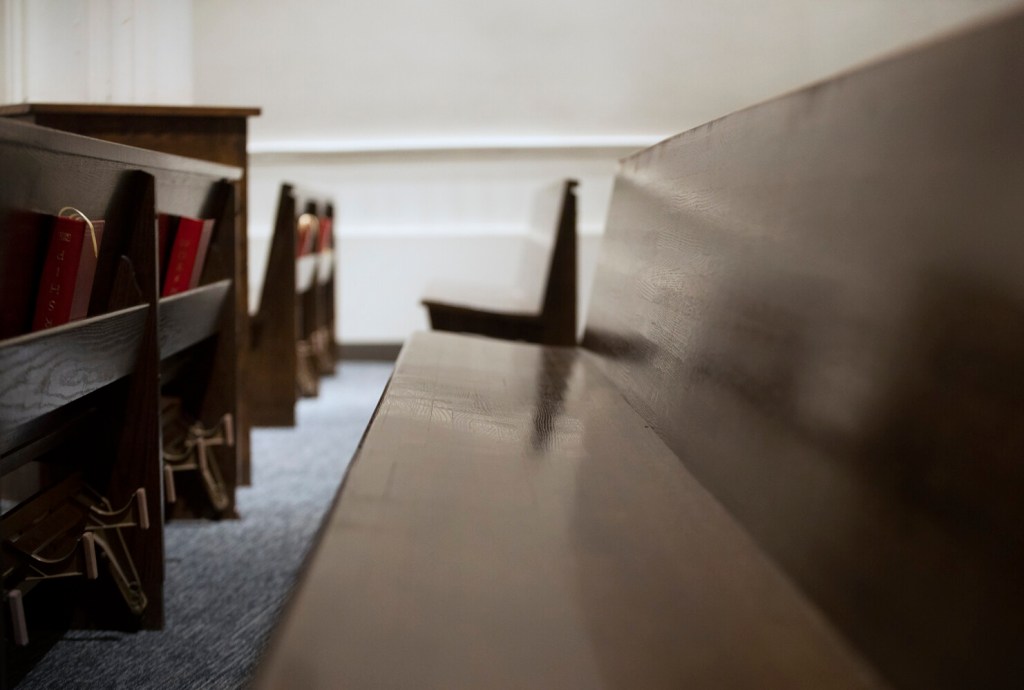
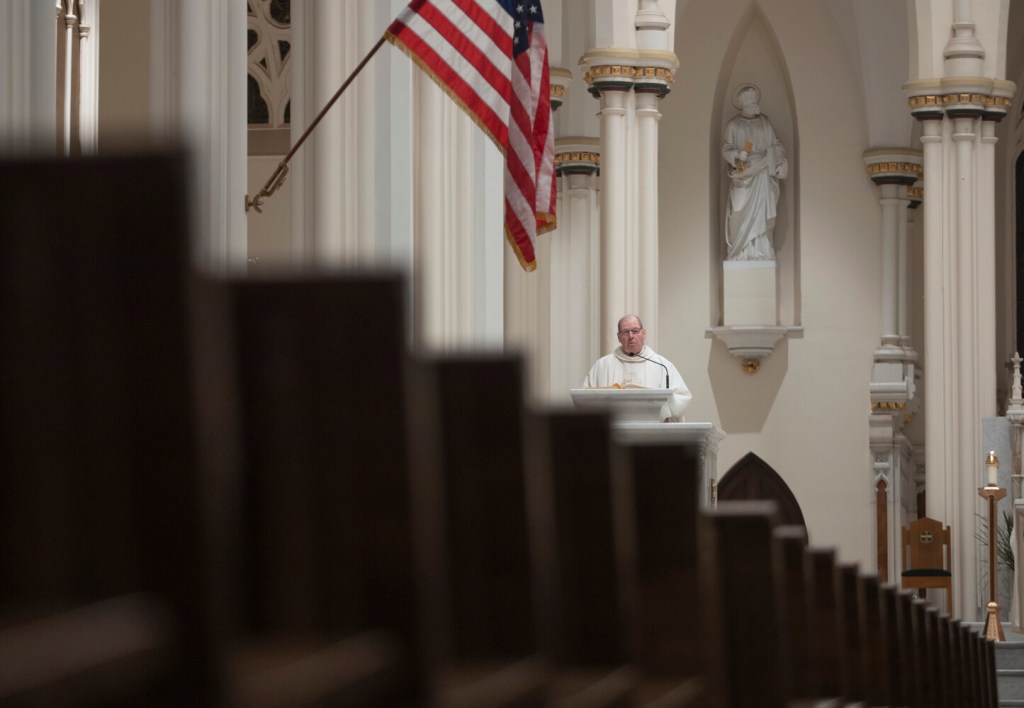
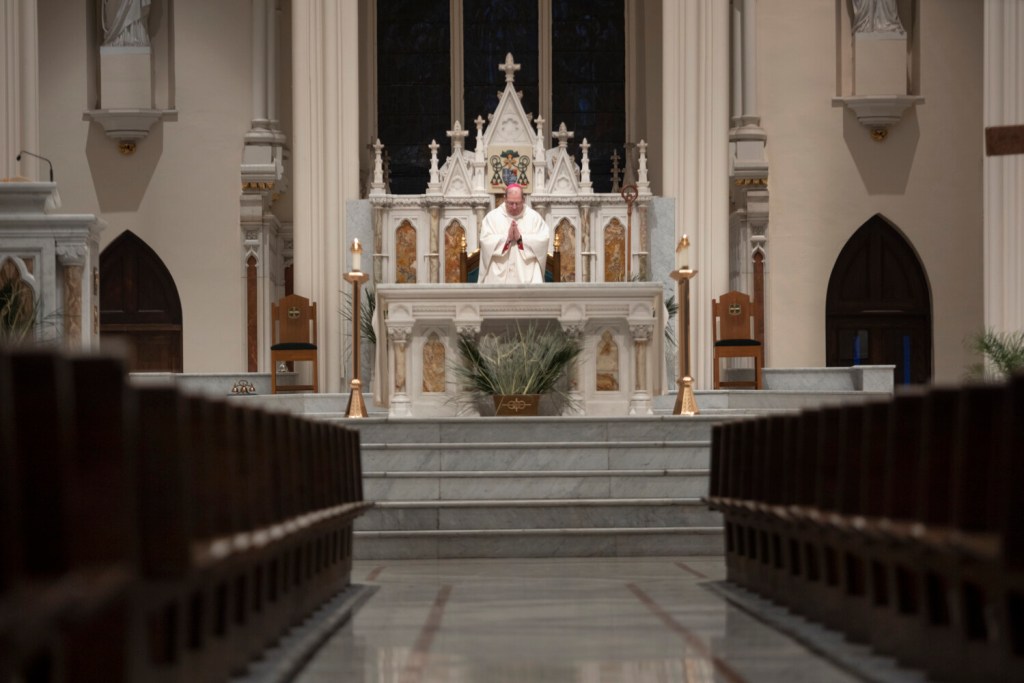

Comments are no longer available on this story